The Importance of Playful Experiences in the Early Years
In this edition of the LINC Blog, Fiona Kirkland, Play Pedagogy Officer at Play Scotland, emphasises the transformative impact of play on early childhood development. Drawing from her extensive experience, she highlights how play fosters creativity, resilience, and social skills. She provides practical strategies for promoting play in various settings and underscores the importance of ensuring all children have access to high-quality play opportunities.
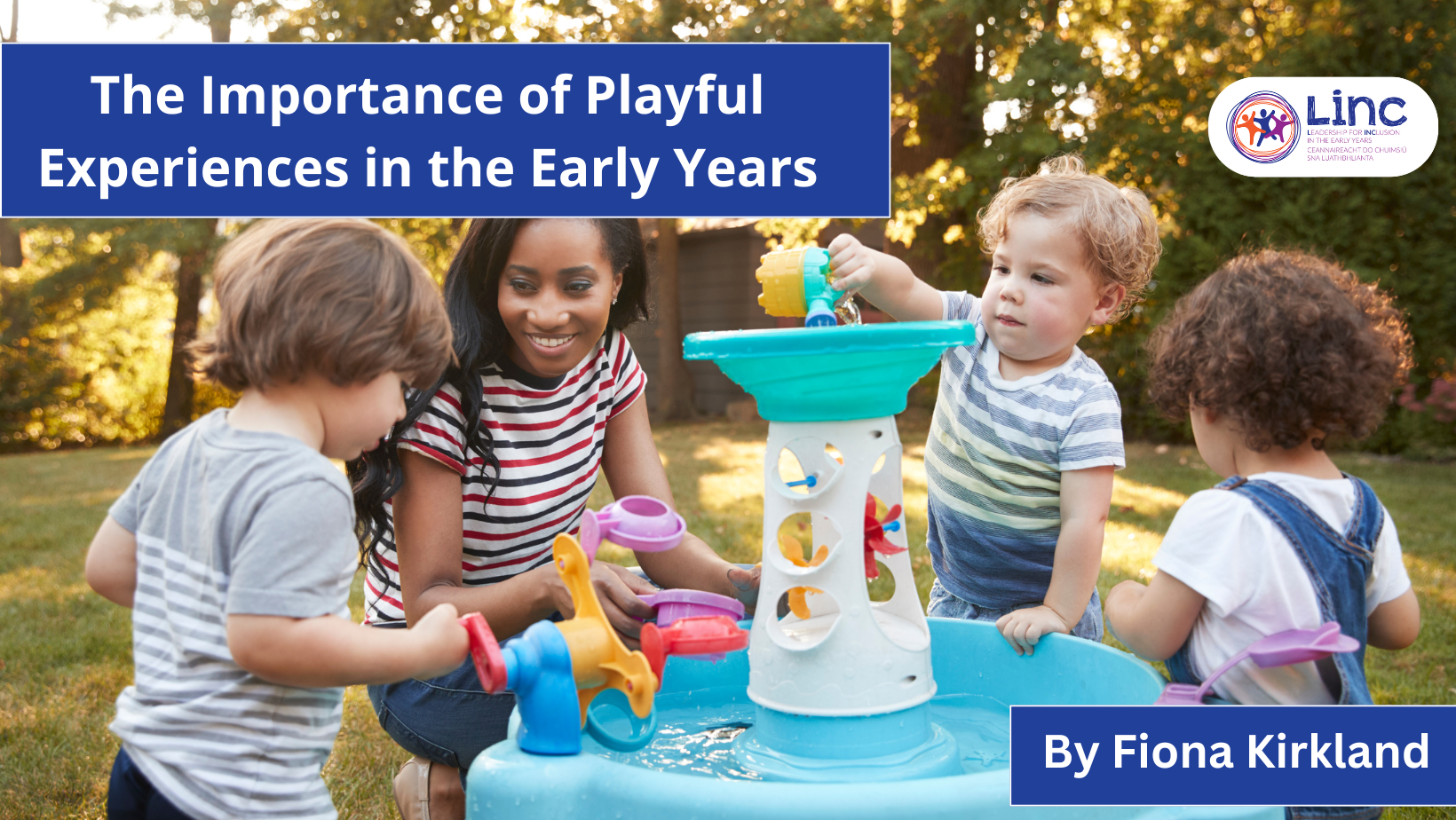
As Play Pedagogy Officer at Play Scotland, I am lucky to witness first-hand how play transforms early childhood development. Beginning my career as an Early Years Practitioner, I’ve supported children and families across diverse socio-economic and cultural backgrounds, including areas of high deprivation and poverty. These experiences have reinforced my belief in the critical importance of playful experiences during early childhood.
Play in Early Childhood Development
Theorists have long emphasised play’s importance in child development. Friedrich Froebel, who pioneered kindergarten, famously stated that play is the highest form of learning. His insights from the 1800s remain relevant today, highlighting how children’s learning is shaped by their environment and interactions.
Tina Bruce, a Froebelian educator and author, emphasises the importance of ‘free-flow play,’ where children choose, control, and direct their play experiences. She highlights the concept of ‘flow,’ the intense focus and involvement children experience during play, crucial for their satisfaction and development. Bruce’s insights show that play is not just a frivolous activity but a fundamental aspect of children’s development.
I’ve always found it fascinating to watch children incorporate their own experiences into play, especially in the home corner. I’ve seen them setting the table, making dinner, and acting out things that they see in their home, probably to the horror of their parents! This type of play sparks imagination, creativity, and abstract thinking, allowing them to experiment with what they’ve been learning and better understand the world around them. It also gives practitioners valuable insights into the child’s life beyond the nursery or setting.
Play-based learning integrates children’s play with curricular learning, aligning with Article 31 of the United Nations Convention on the Rights of the Child (UNCRC), which emphasises children’s right to play. This approach encourages active engagement, curiosity, and exploration, allowing children to learn through hands-on experiences and meaningful interactions with their environment. It also supports cognitive, emotional, and social development, nurturing resilience, and self-expression.
In Scotland, the National Play Strategy underscores the importance of play in early childhood education. It envisions a nation where play is a life-enhancing daily experience for all children, with equal opportunities to participate in diverse and high-quality play experiences. This includes ensuring children have access to stimulating indoor and outdoor play environments, regardless of the weather conditions, which in Scotland can be quite variable!
Play in Practice
There is growing recognition in Scotland of robust evidence supporting the benefits of play-based learning over the years, and our policies and frameworks have evolved to promote this approach. For example, the Curriculum for Excellence (CfE), designed for children aged 3 to 18 years, acknowledges play as crucial for learning and development. It emphasises creating rich and stimulating play environments, particularly in the early years, to encourage imaginative and purposeful engagement, facilitated by practitioners who observe, interact, and extend learning through play experiences.
I recently had a wonderful experience of cross curricular learning in a nursery class I visited where three boys had constructed a spectacular structure using wooden blocks. As I approached, they eagerly offered me something from their ‘vending machine.’ I played along and one of the boys made some noises, then pushed a small brick off the top. Their teacher joined us, asking if I liked their vending machine and mentioning that they had made a detailed drawing of the structure before building it. They explained their inspiration came from one boy using a vending machine the day before and wanting to replicate it, showing clear signs of potential as future engineers!
Socio-Economic Challenges
Working in poverty-stricken areas has highlighted the barriers affecting children’s development, which, as a mother myself, I find disheartening at times. However, I believe that play-based learning offers a powerful tool to overcome these challenges, providing a safe and nurturing environment where children can freely explore, experiment, and learn at their own pace. Play fosters self-expression, social skills, and resilience, offering contexts for autonomous activities that promote independence. In socio-economic deprived areas, play serves as a great equalizer, enabling all children, irrespective of their backgrounds, to thrive and succeed.
Practical Strategies for Promoting Playful Experiences
Encouraging play does not require elaborate setups or expensive toys. Here are some practical strategies:
- Time and Space: Provide plenty of time and space for children to engage in uninterrupted play and allow them to direct their own activities.
- Real-Life Experiences: Ensure children have opportunities to experience and engage with the world around them. Trips to local parks, markets, and community events enrich their play.
- Real-life objects: Use real objects where possible. Get rid of plastic fruit and veg, it may look like an apple (from a distance), but it doesn’t smell, feel, or taste like a real apple!
- Mixed-Age Play: Facilitate mixed-age play where older children can mentor younger ones, fostering social skills and a sense of community.
- Open-Ended Resources: Offer open-ended materials like building blocks, cardboard boxes, and household items. These resources inspire creativity and imaginative play.
- Outdoor Play: Encourage outdoor play regardless of weather conditions. Nature provides endless possibilities for exploration and learning. One of my favourite sayings is ‘there’s no such thing as bad weather, only inappropriate clothing’
Play is the Way!
I am continually inspired by the impact play has on children’s development, whether in affluent areas or poverty-stricken communities. The transformative power of play on young lives is undeniable, and playful experiences during early childhood aren’t merely beneficial; they are essential for sparking creativity, nurturing resilience, and cultivating a lifelong love for learning.
At Play Scotland, we remain dedicated to advocating for the right to play. It’s crucial to recognise that play is not just an activity; it is a fundamental element in a child’s growth and development, deserving of our attention and support. By fostering environments that celebrate and promote play, we can strengthen the holistic development of every child, laying a robust foundation for their future achievements.
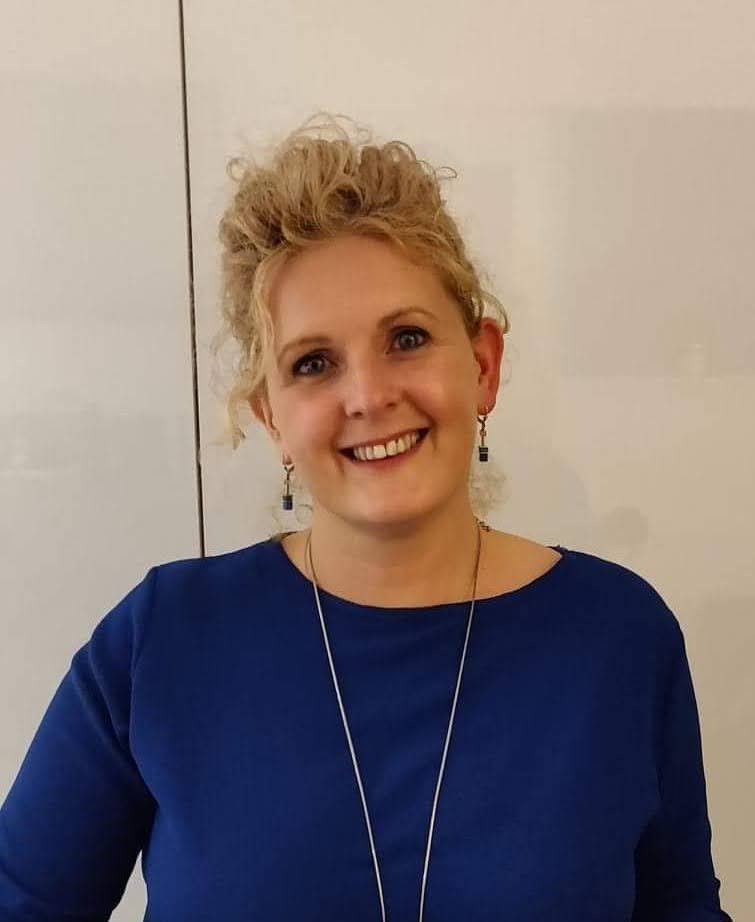
Fiona Kirkland
Play Pedagogy Officer at Play Scotland
Fiona is the Play Pedagogy Officer at Play Scotland and is a dedicated advocate for children’s right to play. She works with schools and educators to develop a play agenda in educational settings and leads the Play Scotland Play Pedagogy Award, which aims to embed play pedagogy in schools across Scotland. She also assists in various projects, including those addressing play sufficiency and place standards.She offers training sessions on play theory and play pedagogy to help educators gain an understanding of the vital role of play in children’s learning and development and is part of a team developing a new national qualification on play pedagogy.
Fiona has worked in early years establishments and schools in different Local Authorities across Scotland and has qualifications in Early Education and Childcare, holds a BA in Childhood Practice from the University of Dundee and is currently studying part-time for the Early Years Pedagogue MEd at Strathclyde University.
Email: fionakirkland@playscotland.org
Twitter: @Fi_PlayScotland
You may also like:
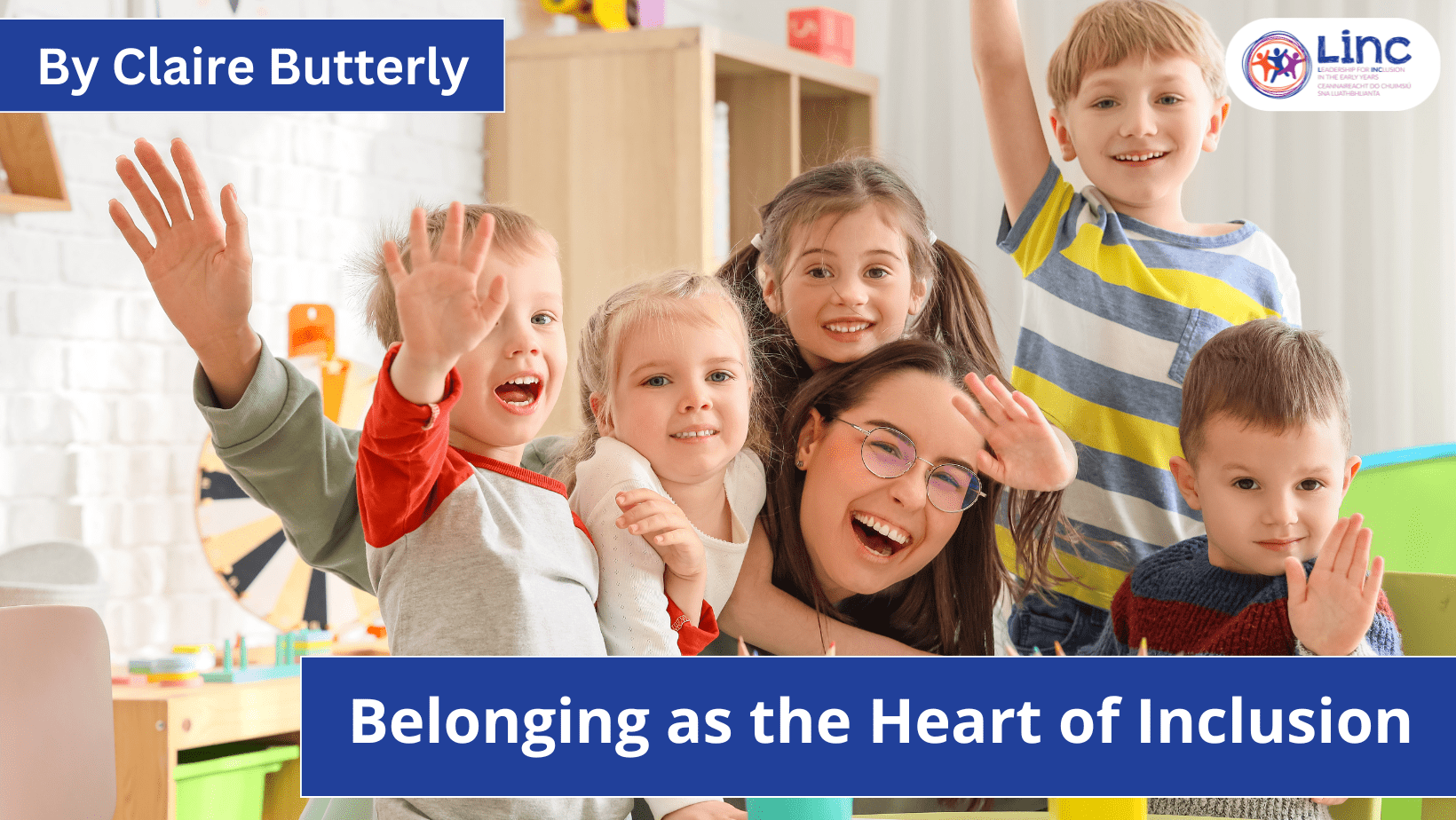
Belonging as the Heart of Inclusion
Belonging as the Heart of Inclusion In this edition of the LINC Blog, LINC National Coordinator Claire Butterly reflects on belonging as the heart of inclusive practice in Early Learning and Care and School-Age Childcare settings. Drawing on the principles of Aistear,...
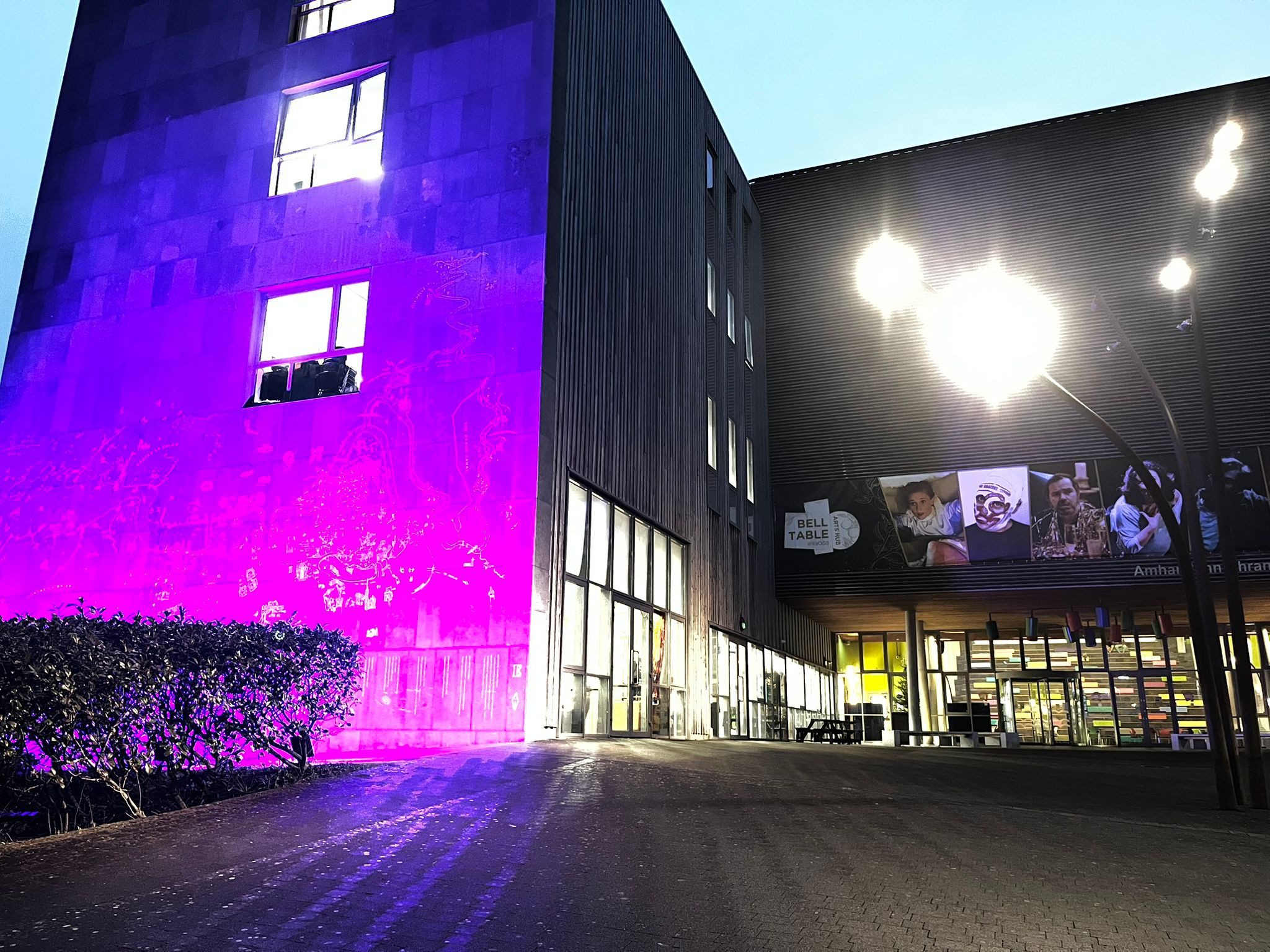
LINC Shines a Light on Inclusion for the International Day of Persons with Disabilities 2025
LINC Shines a Light on Inclusion for the International Day of Persons with Disabilities 2025 The Leadership for INClusion in the Early Years (LINC) Programme marked the United Nations International Day of Persons with Disabilities (IDPD) this evening by illuminating...
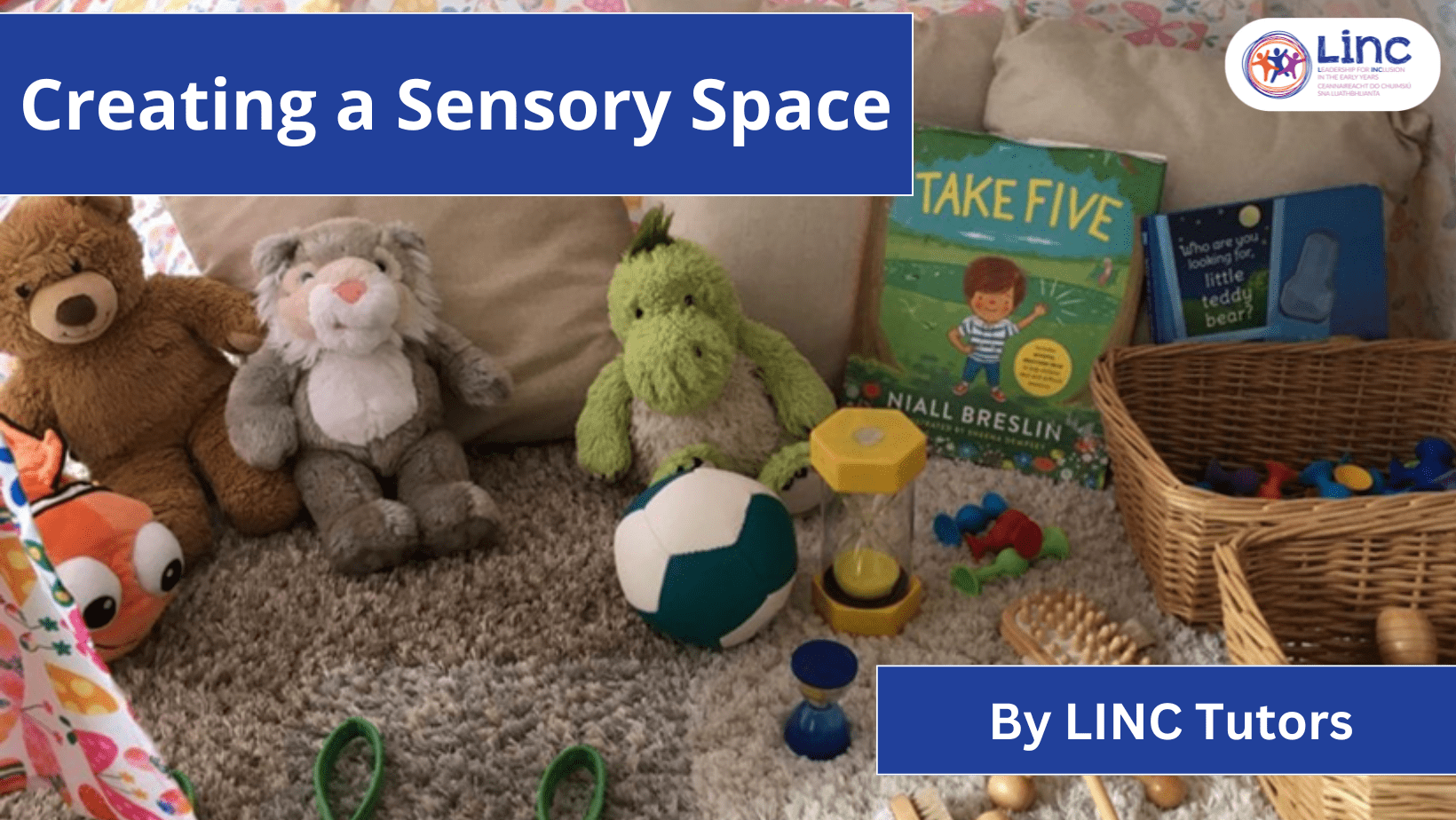
Creating a Sensory Space
Creating a Sensory Space In this edition of the LINC blog, Claire Butterly, Karina Abbott, Ann Donnellan, Carole Dee, Linda Madden, Margaret Joyce and Paula Harte highlight some considerations when planning a sensory space in your Early Learning and Care setting....
